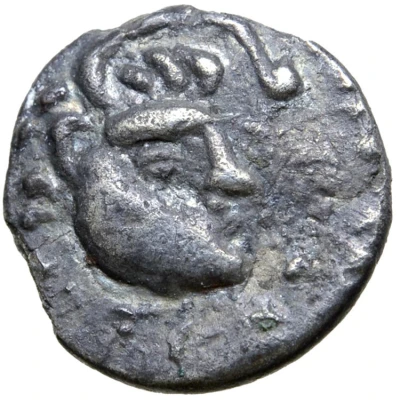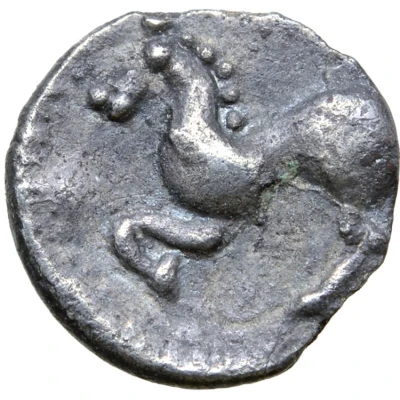


© Roma Numismatics Limited
Hemiobol Kapostal Type 200 BC - 1 BC
| Silver | 0.28 g | 8 mm |
| Issuer | Hercuniates (Central and Eastern European Celts) |
|---|---|
| Type | Standard circulation coin |
| Years | 200 BC - 1 BC |
| Value | Hemiobol (1⁄12) |
| Currency | Drachm |
| Composition | Silver |
| Weight | 0.28 g |
| Diameter | 8 mm |
| Shape | Round (irregular) |
| Technique | Hammered |
| Orientation | Variable alignment ↺ |
| Demonetized | Yes |
| Updated | 2024-10-09 |
| Numista | N#194745 |
|---|---|
| Rarity index | 100% |
Reverse
Stylised horse prancing to left.
Comment
Examples of this type:• Example #1 (0.28g, 8mm, 12h. Extremely Fine) - in main image:
◦ Ex-Hermann Lanz Collection; published in Michaela Kostial - "Kelten im Osten. Gold und Silber der Kelten in Mittel und Osteuropa, Sammlung Lanz", München, 1997, #839;
◦ Auctioned by Roma Numismatics Ltd, Auction XVII, 28 March 2019, Lot 219. Sold for 280 GBP.
Interesting fact
The Hemiobol coin was used by the Central and Eastern European Celts, specifically the Hercuniates, and it was made of silver. Despite its small weight of 0.28g, it was still considered a valuable form of currency during its time. In fact, the Hemiobol was used as a standard unit of exchange for everyday transactions, and it remained in circulation for over 200 years, from 200 BC to 1 BC. That's quite impressive for a coin of its size and material!